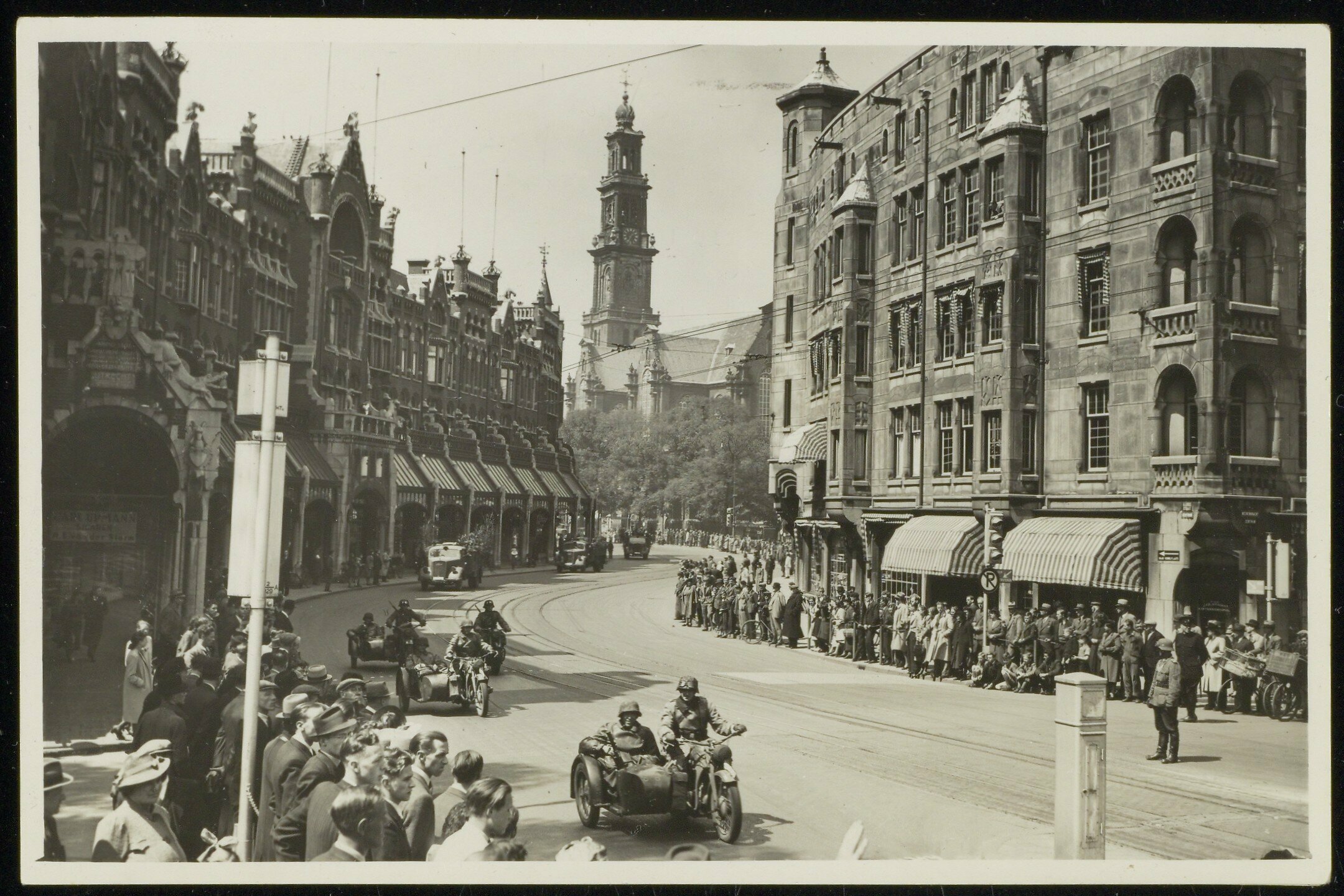On-site research in archives

National Archive and Royal Library
The National Archive in The Hague contains many archives related to the general government and associated organizations, including the Central Archives of Special Justice (CABR). These archives pertains to individuals who were suspected of collaborating with or had connections to the German occupiers during the Second World War. Read more
Currently, the archive is not fully digitized and only partially accessible to the public through on-site research.
The Royal Library (KB) is located within walking distance of the National Archive. Although its name does not imply that it is the library of the king, it is the national library of the Netherlands. The library houses 125 kilometers of books, journals, and newspapers, while the National Archive manages 142 kilometers of archival material and 15 million photographs. Read more
The Royal Library has a collection of all books ever published in the Netherlands, including those of the founder of Dutch Family Roots (see About us).
Regional archives and region-archives
The Netherlands also has regional archives and provincial archives in each of its twelve provinces. In addition to containing documents related to the regional governments and associated organizations, these archives also house information about the daily lives of the inhabitants in different regions.
City archives and the City Archive of Amsterdam
There also are numerous local city archives throughout the Netherlands. The City Archive of Amsterdam is particularly significant for the work of Dutch Family Roots due to the city’s history. Amsterdam was an attractive destination for many people inside and outside the country, and played a central role in three waves of emigration, resulting in many families with Dutch roots being found worldwide (see Home).
Dutch Institute for War, Holocaust, and Genocide Studies
Like the City Archive of Amsterdam, the important Dutch Institute for War, Holocaust, and Genocide Studies (NIOD) is conveniently located within cycling distance from our office in Amsterdam. For researching what happened to Dutch family members during the Second World War, we primarily use information from the this significant institute. Read more
Similarly, the International Institute of Social History (IISG) and the Institute on Gender Equality and Women’s History (Atria) are situated nearby, on cycling distance.
Quick and efficient on-site research
Because the NIOD and the City Archive of Amsterdam are located within cycling distance from our office, it is convenient for us to conduct quick and efficient on-site research at these important institutes. For on-site research outside Amsterdam, we travel by car or by train if the archive or institute can be reached within an hour, such as the National Archive in The Hague and the Archive of North-Holland in Haarlem. Read more
When a family’s history requires on-site research in regions or cities further away, we seek the assistance of colleague historians located elsewhere in the country. As members of a Dutch association of independent professional historians, we have connections with historians throughout the Netherlands.
Digital Screening or Digital Check recommended
Before hiring us for on-site research in archives and historical institutes, we recommend a Digital Screening or Digital Check. With these services, we can look at digital inventories of archives and institutes all over the country. If we are able to do so, it can save a lot of time and money for you during the on-site research itself.
***
“One of my specializations is the Second World War in the Netherlands and former Dutch Indies. It's amazing how many information there is about Dutch family members in this period.”
Rogier Overman, founder of Dutch Family Roots

